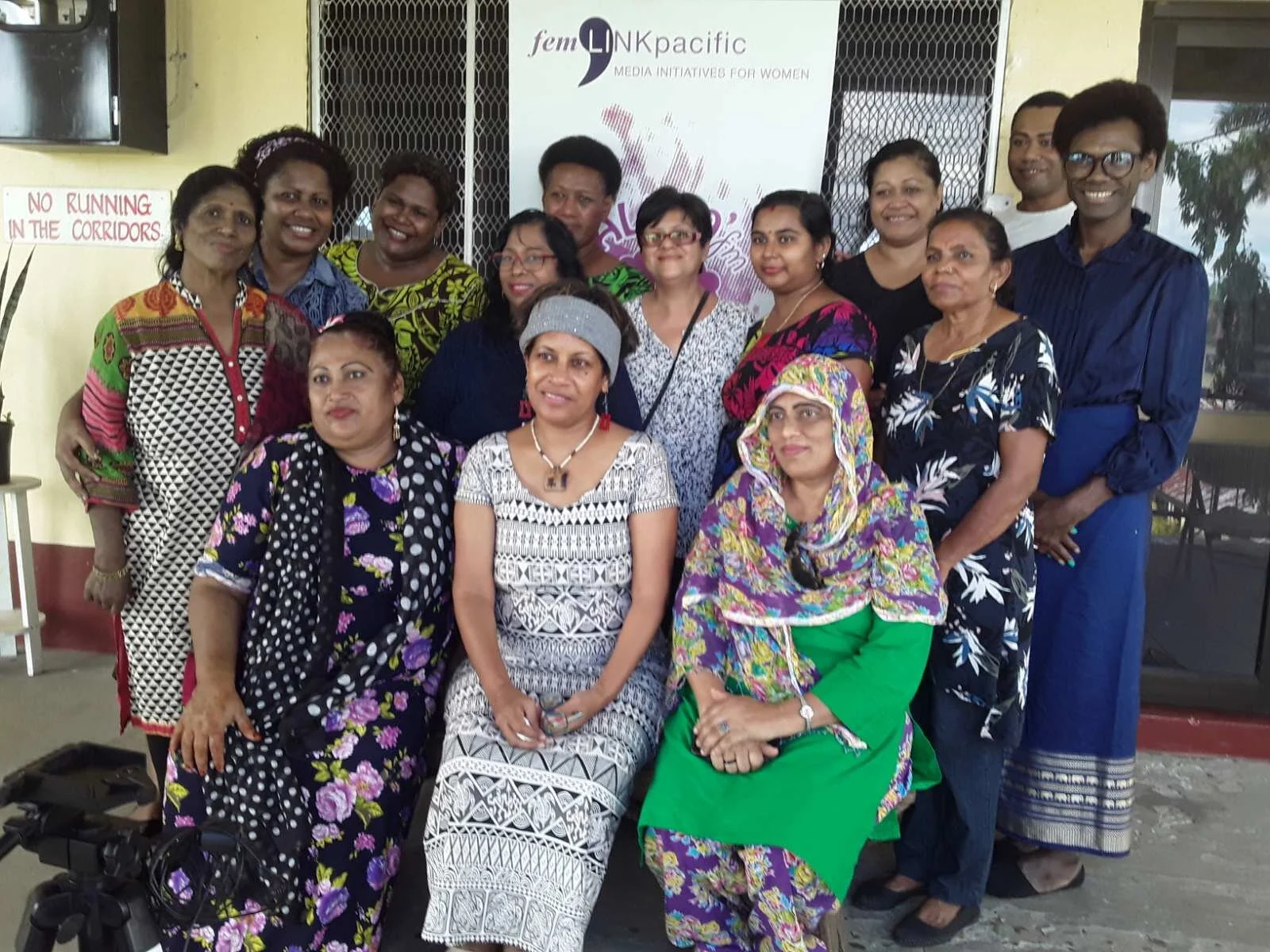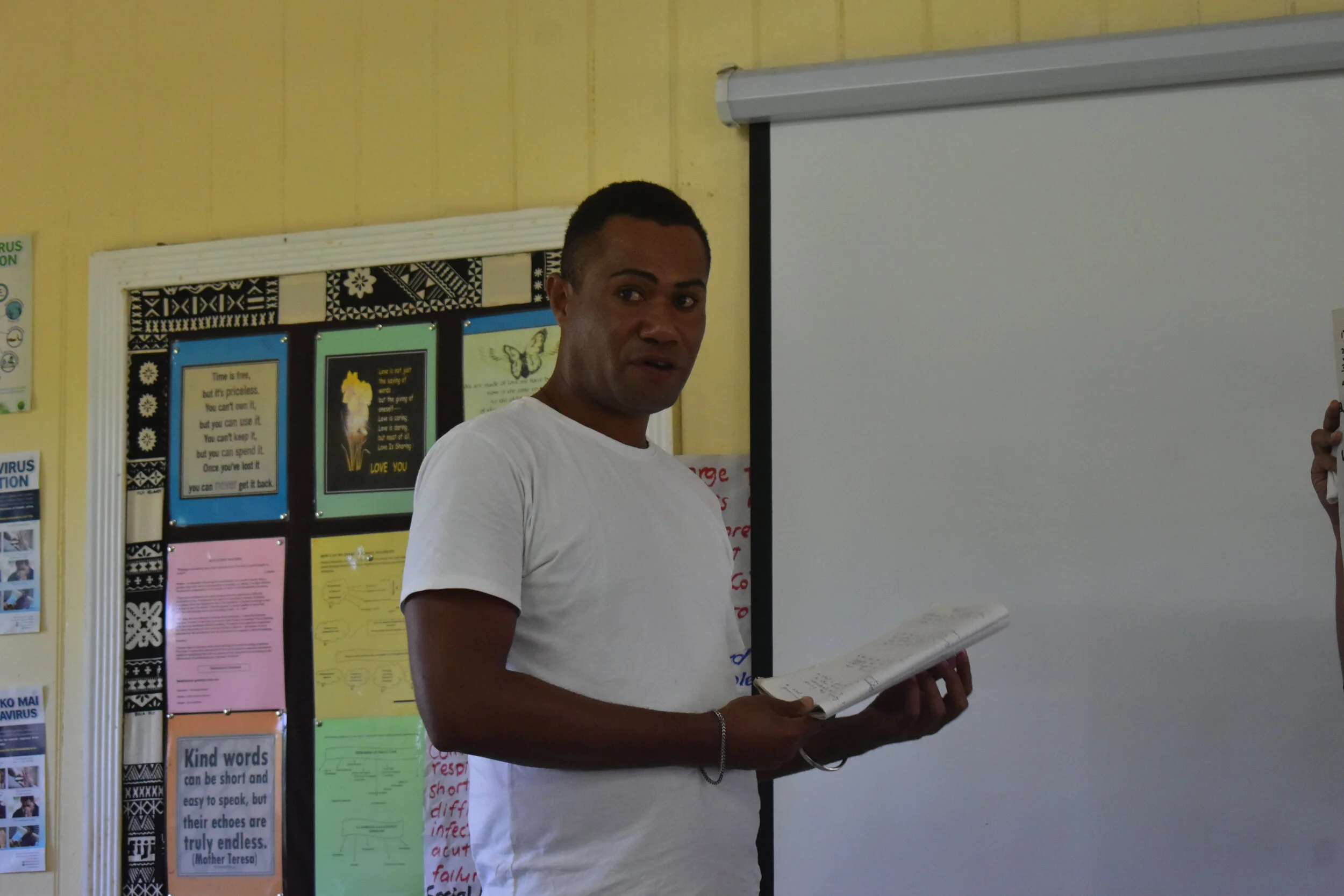“We are isolated and we are pushed aside and for most of our members, we cannot go out into the community and ask for food,” said Roberta Chan, an advocate living with disability and a member of femLINKpacific’s Rural Women Leaders Community Network (RWLCMN).
During femLINK’s Nadi district consultation that was held early last week, members of the Nadi RWLCMN shared the protection risks they experienced as women.
“It’s been a real struggle having to cope with the impact of COVID-19.”
Marsha Soi, an LGBT advocate said COVID-19 had impacted the local communities physically, mentally and emotionally.
“It’s been a real struggle having to cope with the impact of COVID-19,” Soi said.
Soi also said they were still trying to come to terms with what is happening around them:
“We’ve seen people stealing in the community at night just to put food on the table and it’s brought on a lot of stress to other members of the community while coping with the [restrictions].”
Timaima Ralolokula, President of the Veilomani Women’s Club echoed similar sentiments, saying the lack of economic security has had an impact on the personal security of women and children, with some, resorting to stealing in order to be able to feed their families.
Ralolokula said that since Nadi was a tourist town, many people had been affected by unemployment brought on by the pandemic.
“There’s a lot of unemployment, there are a lot of issues. Food insecurity is high,” she said.
“For years, we always expect cyclones, droughts and all these disasters but COVID-19 is something new and it really affects my community.”
She said domestic violence in communities had increased because of unemployment, with households facing issues like food security.
Timaima has been conducting surveys of households and communities as a first responder and outlined how household are finding it difficult to put food on the table.
She also outlined the impact on economic security with the connection to unemployment in the usually bustling and touristy town Nadi - and where there’s less money in the family and where it also leads to the effect on personal security where some young children are reportedly entering supermarkets to steal meat or groceries.
The issues of the Nadi rural women’s network have revolved around the closure of the hotels and the subsequent job losses, and the effect of the closure of Nadi Airport.
The demand for land and the limited access to it for backyard gardening to put food on the table have resulted in increased conflict.
“Like Nadi and Nadroga they are totally dependent on this tourism industry so there is a big problem with their families because they are not able to put food on the table and they also have been engaged with other mortgage and other systems so they are finding it very difficult to live their lives,” echoed Williama Swammy of the Satya Sai Service Organisation.
The network women also reported how they’ve tried to adapt their routine and their lives in a COVID-19 Pandemic.
Yasmin Khan of the Almahdina Women’s Club explained that members of her club have adapted our lives through ensuring that they’re doing backyard gardening, and making use of the little soil that they have.
“We use anything that we have which can hold some soil, we can do our planting there and I have told my women in my club that we are all doing the same.” “And also those women who cannot do anything they can ask the church ministries and women’s groups and also youth groups to come and intervene,” said Yasmin.
In an FBC report on the 28th of May, Police Commissioner Brigadier-General Sitiveni Qiliho had said that serious crime and crime against women and children have decreased.
According to the Office of the Director of Public Prosecutions, 12 people were charged with 17 counts of separate incidents sexual offences (16 for rape and 1 for indecent assault.
Thirty-six (36) people were charged with a total of 42 counts of separate incidents for serious crimes (non-sexual violence offences).
femLINKpacific is currently conducting its monthly convenings across 10 districts, with a focus on the impact COVID-19 has had on communities, especially on diverse women and girls.
femLINK is also distributing informational materials from members of the CSO Alliance for COVID-19 Humanitarian Response to the RWLCMN.
The Western Division convenings will then be followed by those in the North and Central.
femLINKpacific’s first series of COVID-19 Pandemic convenings with the Rural Women Leaders Community Media Network (RWLCMN) is a femLINKpacific WeRise Coalition activity, supported through the Australian Government. We also acknowledge the support of our coalition partner, the International Women’s Development Agency (IWDA).
For more, hear our soundcloud interviews and visit our Facebook page.


